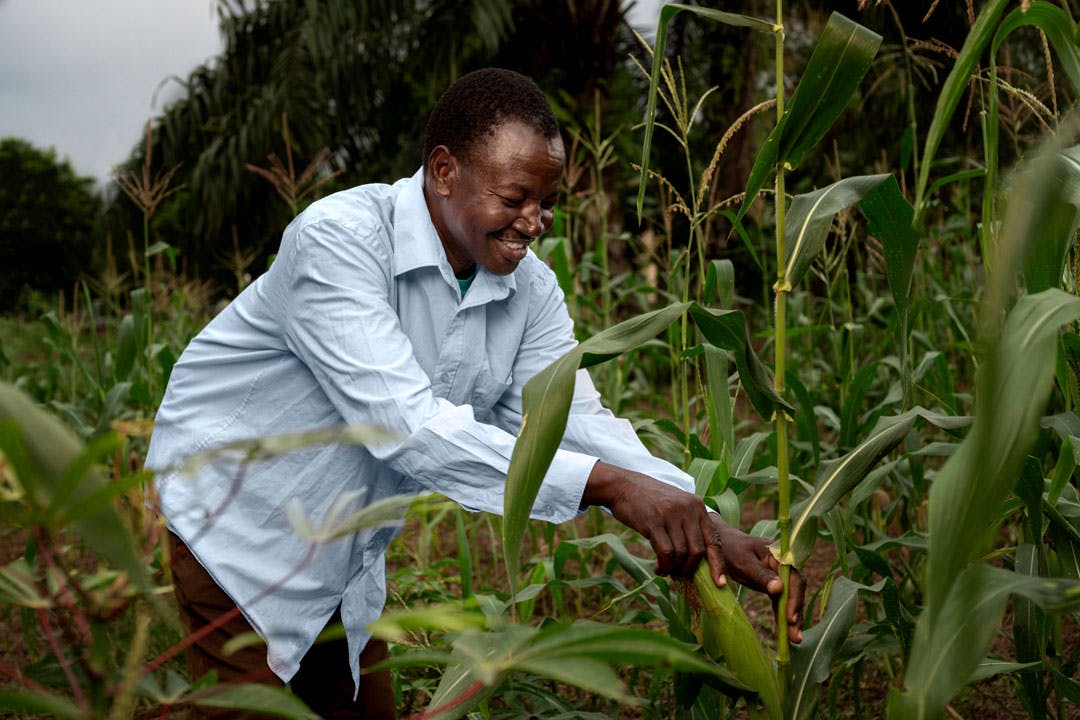
Intra-African trade in agriculture holds immense promise as a catalyst for economic growth, food security, and sustainable development across the continent. While the projections paint a compelling picture of the potential gains awaiting African nations, the realities on the ground underscore the formidable challenges that must be overcome to realize this vision.
According to estimates, intra-African trade in agriculture could skyrocket by an astonishing 574% by the year 2030 if tariffs are eliminated under the AfCFTA. This exponential surge in trade volume underscores the vast opportunities lying within Africa's borders, waiting to be unlocked through enhanced cooperation and harmonized trade policies.
The AfCFTA's ambition extends beyond mere trade expansion; it seeks to foster a more resilient and inclusive agricultural ecosystem, one that empowers smallholder farmers, bolsters food security, and catalyzes rural development. By facilitating greater market access and reducing trade barriers, the agreement lays the groundwork for a more integrated and dynamic agricultural sector, capable of driving sustained economic growth across the continent.
Challenges and Realities on the Ground
Despite Africa's vast agricultural potential, 80% of the continent's 51 million farmers are smallholders engaged in subsistence farming. These farmers, operating on less than one hectare of land and earning approximately two dollars a day, face significant challenges in accessing innovative technologies critical for improving productivity. While large, mechanized farms embrace technology, smallholders often lack the financial resources to adopt digital agritech tools, hampering their ability to compete on a larger scale.
The AfCFTA acknowledges this digital divide and emphasizes the need for public-private partnerships to facilitate the adoption of digital solutions among smallholder farmers. Collaborations in this regard can bridge the gap, empowering farmers with tools that enhance productivity, reduce manual labor, and contribute to sustainable agriculture.
African nations currently spend a staggering $75 billion on food imports annually, with one in five Africans suffering from malnutrition. The AfCFTA aims to address this by fostering local production and reducing dependence on external sources. The goal is to transform Africa into a net exporter of food by 2050. However, achieving this objective requires a multifaceted approach, encompassing increased investments in infrastructure, sustainable agriculture practices, and overcoming logistical challenges.
Realizing the potential of intra-African trade in agriculture demands substantial investments in infrastructure. McKinsey estimates an 800% increase in fertilizer application, a $65 billion-plus investment in irrigation, and over $8 billion in investment for storage through local warehouses. These infrastructure needs are critical for sustaining higher levels of exports and ensuring the competitiveness of African agricultural products in the global market.
The private sector, in collaboration with governments and international organizations, plays a pivotal role in addressing these infrastructure gaps. Initiatives focused on building storage facilities, improving transportation networks, and promoting sustainable agriculture practices are essential for creating an enabling environment for intra-African trade to flourish.
Another one of the foremost challenges stems from the fragmented nature of Africa's agricultural landscape. With diverse agro-climatic zones, varying production capacities, and disparate regulatory frameworks, harmonizing agricultural trade becomes a complex endeavor. Intra-regional trade barriers, ranging from cumbersome customs procedures to inadequate infrastructure, further exacerbate the challenge, hindering the smooth movement of agricultural products across borders.
Moreover, the prevalence of informal cross-border trade poses a significant obstacle to the formalization and optimization of intra-African agricultural trade. Informal trade routes, characterized by a lack of regulation and oversight, not only undermine government revenue streams but also perpetuate inefficiencies and market distortions, limiting the potential benefits of formal trade channels.
Additionally, the persistence of non-tariff barriers, such as sanitary and phytosanitary standards, poses a formidable challenge to intra-regional agricultural trade. Divergent regulatory regimes and inconsistent enforcement practices often impede market access for agricultural products, constraining the ability of farmers and agribusinesses to tap into regional markets.
Strategies for Success
Despite these challenges, opportunities abound for African nations to harness the full potential of intra-regional agricultural trade. To navigate the path ahead and realize the promises of the AfCFTA, concerted efforts are needed to address the underlying impediments and capitalize on emerging opportunities.
First and foremost, enhancing trade facilitation mechanisms is paramount to reducing transaction costs and streamlining cross-border trade processes. Investing in modernizing customs infrastructure, implementing digital trade platforms, and harmonizing regulatory frameworks can significantly expedite the movement of agricultural goods, fostering a more conducive environment for intra-African trade.
Furthermore, strengthening regional value chains and promoting agro-industrialization are essential strategies for catalyzing intra-regional agricultural trade. By fostering linkages between production, processing, and distribution nodes within the region, African nations can amplify the value-addition potential of their agricultural commodities, creating more resilient and competitive supply chains.
Moreover, investing in infrastructure development, particularly in transport and logistics networks, is critical for enhancing connectivity and reducing trade costs. By bolstering road, rail, and port infrastructure, African countries can unlock the geographical dividends of intra-regional trade, facilitating the seamless movement of agricultural products across borders.
Additionally, harmonizing regulatory standards and enhancing institutional coordination are imperative for overcoming non-tariff barriers to trade. Aligning sanitary and phytosanitary standards, strengthening food safety protocols, and promoting mutual recognition agreements can foster greater confidence in intra-regional trade, unlocking new opportunities for farmers and agribusinesses.
Again, private sector partners, in collaboration with the World Economic Forum's Friends of the AfCFTA initiative, have embarked on strategic initiatives to accelerate the growth of Africa's agriculture sector. These initiatives are highlighted through case studies and corporate commitments presented in the Forum's reports.
Coca-Cola Africa's "Mango Hub" Initiative
Coca-Cola Africa, a longstanding investor in Africa, is pioneering the "Mango Hub" initiative as part of its agro-processing endeavors. This initiative aims to leverage the East African Community's common market to streamline the movement of mangos across borders. By creating a regional supply chain for mango purée, Coca-Cola Africa seeks to enhance regional sourcing, reduce food loss, and provide economic opportunities for mango farmers and processors within the region.
The "Mango Hub" exemplifies how private sector actors can align their business strategies with the goals of the AfCFTA, contributing to the development of resilient and sustainable value chains.
Yara International's Focus on Smallholder Farmers
Yara International, a global fertilizer company, places a strong emphasis on smallholder farmers across Africa. Through initiatives like the Crop Nutrition Centres (YCNCs) and digital farming technologies, Yara aims to empower farmers with tailored agronomic advice and affordable, differentiated fertilizers. The company's MiCrop project, focusing on reducing soil acidification and customizing fertilizers to local conditions, underscores the importance of sustainable and region-specific solutions.
Yara's commitment extends beyond business operations to social impact and public affairs. The creation of the Social Impact & Public Affairs (SIPA) unit, along with initiatives like the Yara Leadership Academy, demonstrates a holistic approach toward addressing the challenges faced by smallholders, particularly women and youth.
Worldwide Brewing Alliance's Commitment to Local Sourcing
The Worldwide Brewing Alliance (WBA), represented by Anheuser-Busch InBev and Heineken, recognizes the significance of the beer sector in Africa's economy. With a commitment to increasing the sourcing of raw materials from Africa, WBA partners with the Forum and the AfCFTA to accelerate the transition of raw materials to finished goods within the continent.
Heineken's CREATE project in Ethiopia is a notable example of a project focused on local sourcing. By introducing new barley varieties and supporting local farmers, Heineken has not only increased productivity but has also attracted major investments, bringing value-adding processing capability to Ethiopia.
Industrial Zones
Furthermore, establishing industrial zones (SEZs) tailored to the needs of agricultural industries can significantly boost intra-regional trade. Ghana’s Meridian Industrial Park stands as a prime example of such an initiative. The Meridian Industrial Park offers a conducive environment for agro-processing and value addition, providing incentives such as access to tax breaks, streamlined regulatory procedures, and access to state-of-the-art infrastructure. By attracting both domestic
and foreign investments, industrial zones like the Meridian Industrial Park catalyze the growth of agro-industrial clusters, fostering collaboration among stakeholders and amplifying the competitiveness of African agricultural products in the global market.
The success of these initiatives and commitments underscores the importance of public-private collaboration in realizing the potential of intra-African trade in agriculture. Governments, international organizations, and the private sector must work hand in hand to address the challenges faced by smallholder farmers, invest in infrastructure, and create an enabling environment for sustainable agriculture practices.
Beyond company-specific initiatives, the World Economic Forum's Global Alliance for Trade Facilitation is crucial in fostering digitalization in trade processes throughout the African continent. By focusing on the e-certification of phytosanitary certificates, the alliance aims to reduce delays caused by manual processing and facilitate the seamless movement of plant products across borders. The success of similar initiatives in other regions demonstrates the potential for substantial time and cost savings, providing a blueprint for further digitalization projects in Africa.
To conclude, intra-African trade in agriculture presents a promising avenue for economic growth and development, with projections suggesting a substantial increase in trade volume under the AfCFTA. However, translating these projections into reality requires addressing significant challenges, including the digital divide among smallholder farmers, infrastructure deficits, and regulatory barriers. Strategies for success encompass enhancing trade facilitation mechanisms, promoting regional value chains, investing in infrastructure, and harmonizing regulatory standards. Private sector initiatives, such as Coca-Cola Africa's "Mango Hub" and Yara International's focus on smallholder farmers, exemplify collaborative efforts aligned with the goals of the AfCFTA. Moreover, the establishment of industrial zones and initiatives like the Global Alliance for Trade Facilitation underscore the importance of public-private partnerships in unlocking the full potential of intra-African agricultural trade.
More
updates

Addressing The Infrastructure Gaps in Sub-Saharan Africa
Blog∙11th March, 2025

Regional vs. National Approaches to Trade Facilitation: Which is More Effective for Africa?
Blog∙11th December, 2024

Earn Big with Dawa Refer & Earn: Unlock Lucrative Rewards for Every Business You Refer!
Blog∙13th November, 2024

Leapfrogging the Growth Trap: Policy Initiatives for Developing Economies in a Globalized World
Blog∙4th October, 2024

Pioneering a New Era in Industrialization: Dawa Industrial Zone Champions Sustainable Development at Economic Zones Policy Roundtable
Blog∙25th September, 2024
